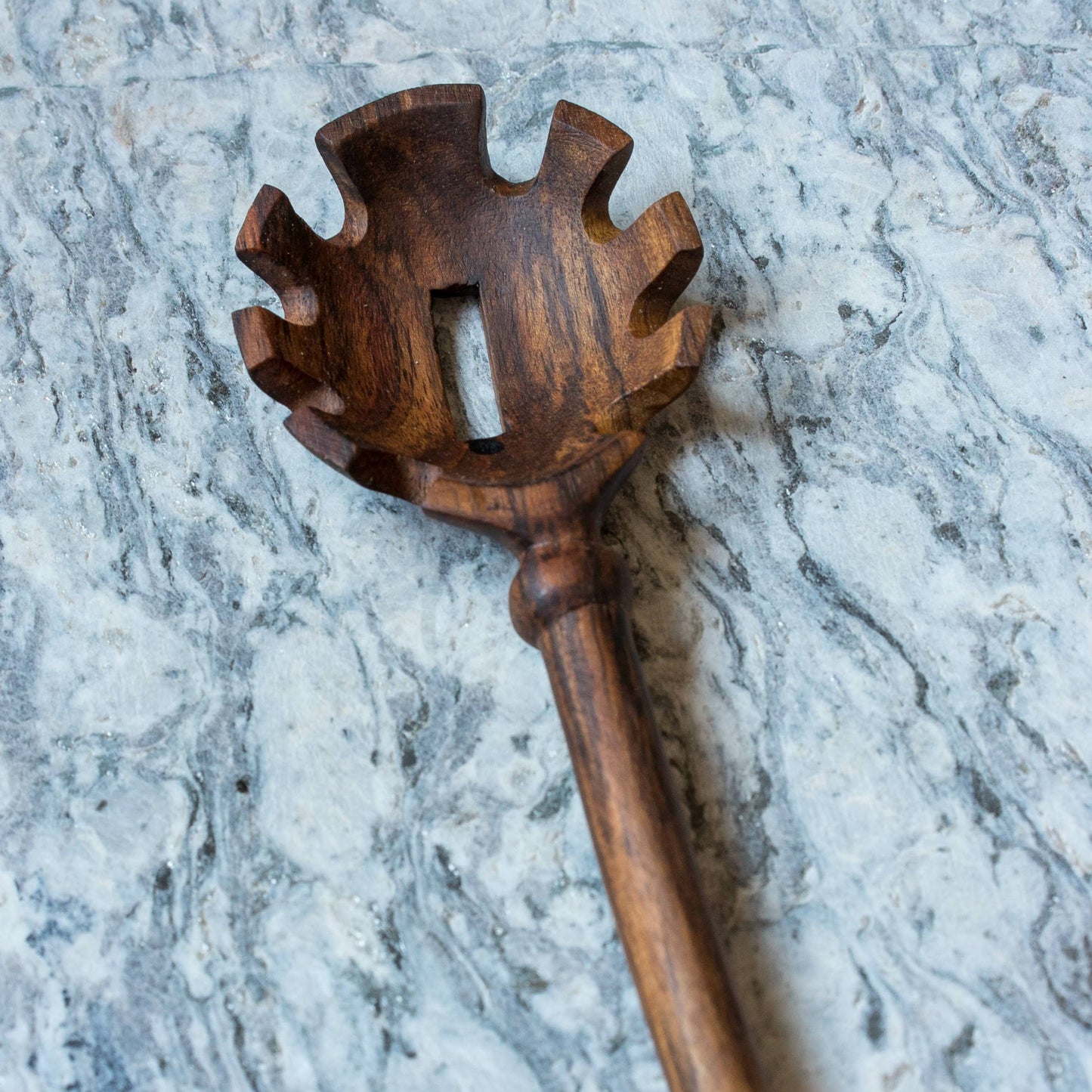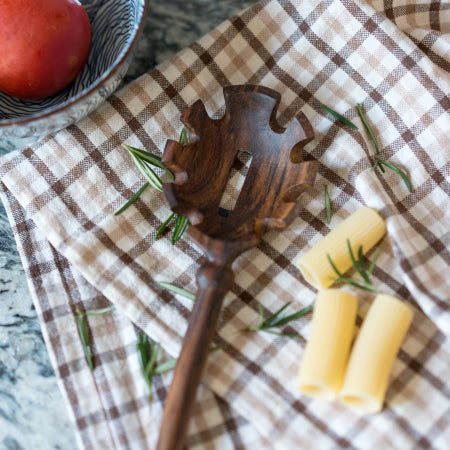Hand Carved Pasta Spoon
Hand Carved Pasta Spoon
Low stock: 7 left
Share
Couldn't load pickup availability
May this expertly carved pasta spoon be a part of your family for many hosting memories to come. Includes a tag sharing the name of the artisan and their cooperative. Perfect for gift giving—this special touch makes your gift even more meaningful. Whether for your own kitchen or as a thoughtful offering to someone special, this spoon supports your love of cooking, honoring the artisan who made it and sharing meals with those you care about.
Azizi Life | Fair Trade | Handmade in Rwanda
Azizi Life’s vision is to participate in local initiatives for the development of Rwandan communities, working towards physical and spiritual wholeness for all.
Across the hills of Rwanda, groups of rural artisans are working to bring hope to their families through skillfully handcrafted goods. Azizi Life partners with over 60 independent groups- a total of over 760 artisan partners. Rising from the horrors of genocide, artisans from all backgrounds have joined together once again through their craft. Each artisan cooperative specializes in hand crafting products using specific techniques and raw materials. Azizi Life is honored to partner with these women and men, collaborating to connect makers, designers, and customers around the world.
Azizi Life is committed to paying an agreed-upon fair wage to the artisans as soon as we receive their products. The additional income from the sale of their art allows the craftspeople & their families to afford many things that they struggled to get before:
Medical insurance – improving health
School materials for their children – improving education
Soap and other cleaning products – improving hygiene
A more balanced diet – improving nutrition
Farm animals that multiply for income and provide manure – improving resources, soil quality and crop yield
Financial independence- improving relationships with spouses and neighbors
Having the money available to invest in these kinds of things provides a real sense of security and hope for the future for the artisan and her whole family.
Many of the women with whom we are working have told us how isolated they felt before they joined an art cooperative. Now as they meet with others regularly, they have the opportunity to discuss their problems and provide support for each other. As the ladies sit together to weave or do some other artistic endeavor, they use the time to talk about all manner of things, from best farming practices to child rearing. It is a time when they are able to find mutual support and friendship which previously they did not have time for, as they worked full time in the fields and in their homes.
In one community, this level of closeness is used to even bring reconciliation between the victims and perpetrators of the tragic events of 1994 (the Rwandan Genocide).




